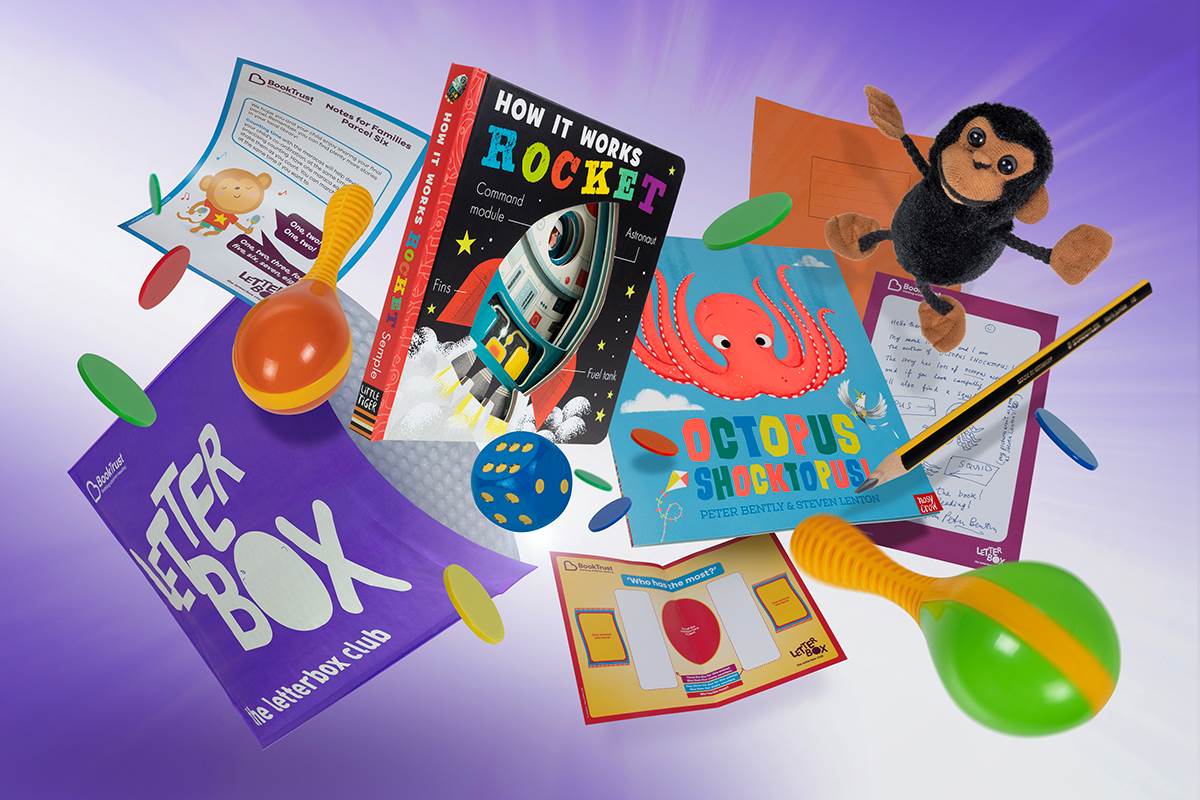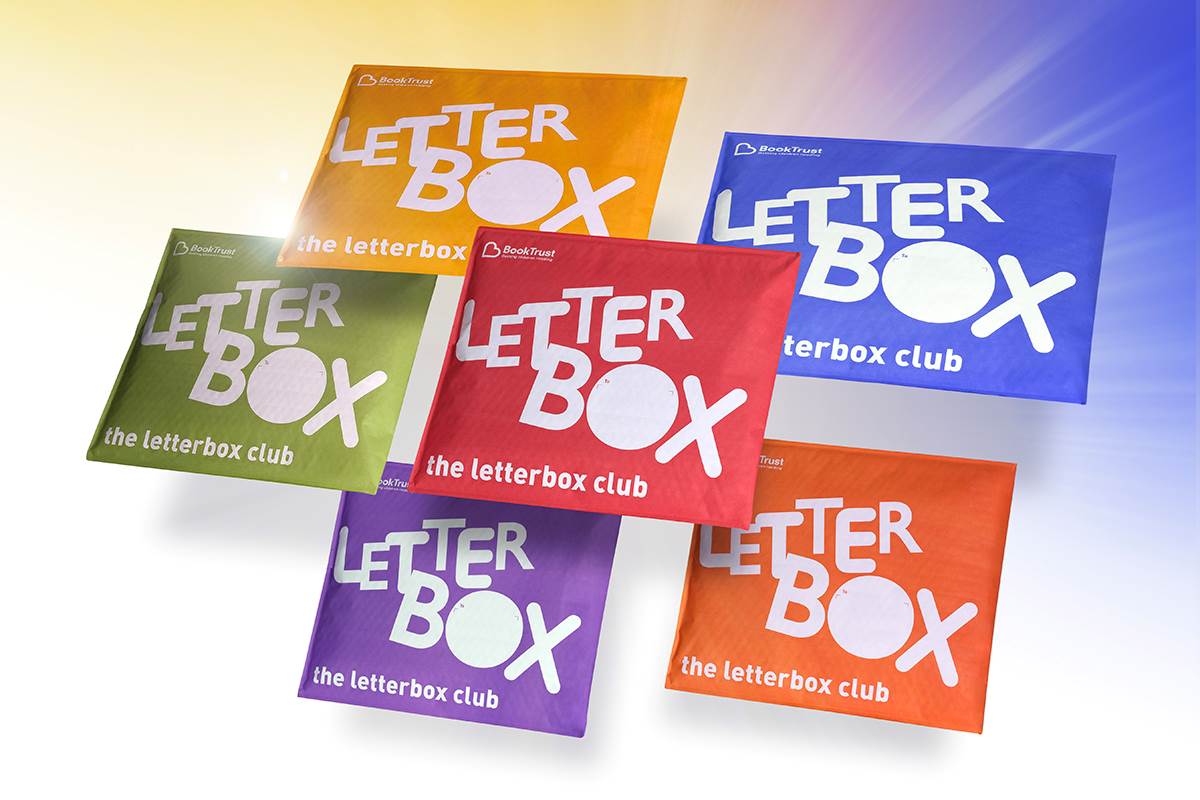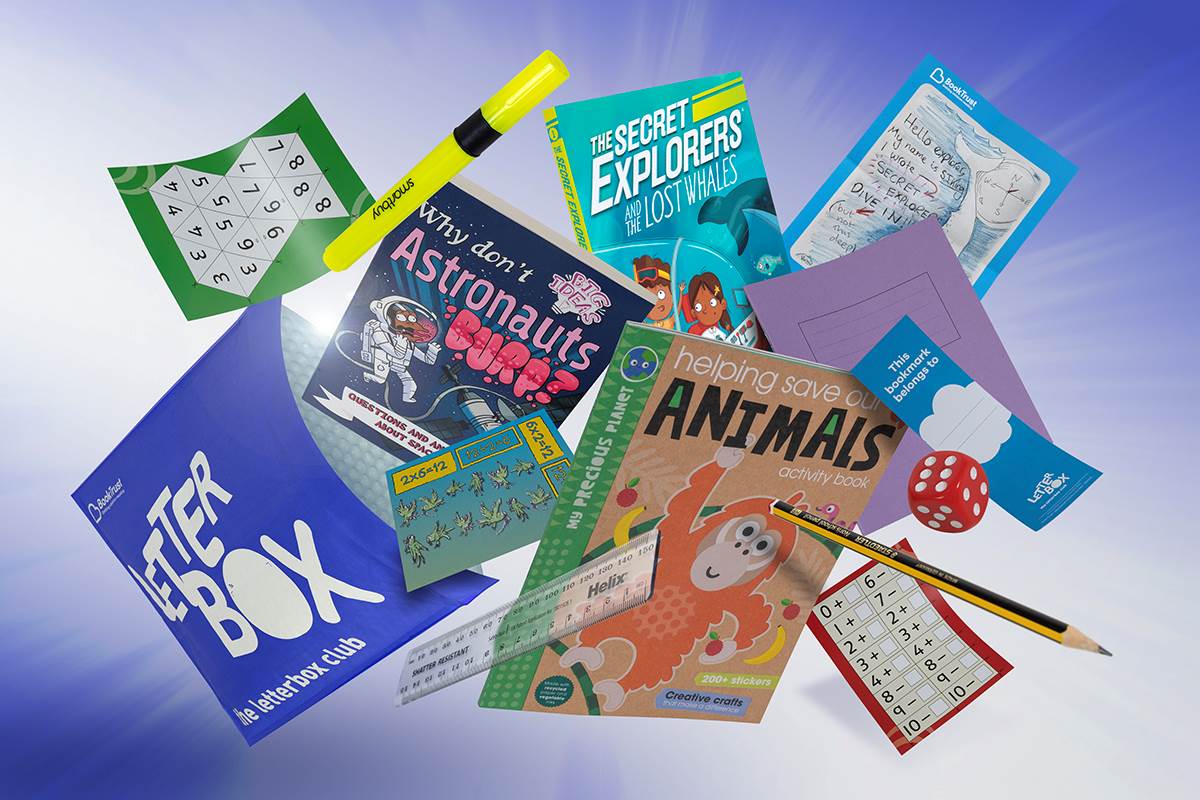Books for building trust: "I find books really beneficial for talking about emotions. You don’t want foster children to be scared to talk about their experiences"
Published on: 15 August 2023
BookTrust's Letterbox Club gives packs of books and games – carefully selected by a panel of experts - to children in care settings, every month for six months.
Amanda and her partner have fostered almost 30 children in Central England in just under five years. She's also one of the experienced foster carers who sits on a panel and helps select books that go into the Letterbox Club parcels sent to foster families.
Here, Amanda shares why supporting foster children in care to enjoy books and reading is vital – and what she considers when choosing books for children in care.

Amanda says:
"Everything is turned upside down for children when they are in care. For me, fostering is about stabilising these children for a period of time.
"When you first welcome a foster child into your home, a first challenge can be that they don't trust you.
"Even if they might not like their parents' actions, they'll feel loyal towards them. Sometimes it takes longer for a foster child to allow you in, because that's seen as going against their parents. They often won't want to read a book that I've bought for them, for example.
"I find they're much more open to the books in BookTrust's Letterbox Club parcels. Those books have been sent to them in the post, rather than given to them by me. They are more than happy to read through the Letterbox Club books - because the parcel is something that's theirs.
"I tend to let the children take the Letterbox Club parcels away to their room so they can open them in their own space. I'll already know what's in there and have had a look."
Introducing a reading habit for foster children

"The children I've supported have had very little exposure to reading, books and being read to. I've known some foster children that sit and read - but when you ask them what the book is about, you realise they haven't read it at all, because they can't.
"Reading a book out loud gets everybody at home involved. Sometimes I'll just sit and read to myself out loud. If a child that doesn't want to read with you, and they're on the other side of the room, you can see that they're listening. Sometimes they'll be sat next to me just looking at the pictures, and that's fine, too.
"By the time they move on from our home, they love books. They have no choice! I think it's really important."
Using books to support children experiencing difficult emotions
"I find books really beneficial for talking about emotions. A lot of foster children struggle with either dealing with or understanding their emotions.
"These children have gone through something and at some point in their life, it will have an effect. As a foster carer, it's about building a relationship with a child so that, if that comes to the surface during your care, they feel able to trust you and get comfort from you.
"I think the best way of having a conversation with a child is through a story. I'm not just sticking to the story [when I read with them]. I'm unpicking that story and talking about it with that child."
Letterbox Club: books chosen by foster carers for foster children

"I know how much work goes into selecting BookTrust's Letterbox Club books. There's a real variety of activity books, story books and the special Letterbox Festive ones at Christmas.
"I like a range of colourful books. I also like books that are very minimalistic, especially if a child has had a bad day and they've got lots going on in their head.
"I like books to offer diversity. I do love books that are just fun to read. But I also love a book with a story that has a meaning behind it. They make a child think and they make for good conversation with that child.
"I know some of the books we've chosen for Letterbox Club are about children that don't live with their own families. Most families aren't stereotypical. I think it's really good for children to understand that's actually the normality.
"It's also important for them to understand where they've come from. You don't want foster children to be scared or embarrassed to talk about their experiences. It's their life story and it's important. I think knowing that other people – whether they're real people or characters in a book – have had the same lived experiences is important for children in care."
Using books to remind children someone cares
"When the children we foster get books, I write their name in them. I also write the month and the year that they got them. My dad used to do that with my books. They hold memories for me now.
"After children have left our home, I would hope that they would revert back to the books they've been given while they're here. If they're not in a good place, they can take the books and hopefully they might have some happy memories of: 'Oh, I read this with Manda. I read this after I had a tricky day at school and it made me feel happy.'"
Topics: Letterbox Club, Case studies, Features, Testimonials





